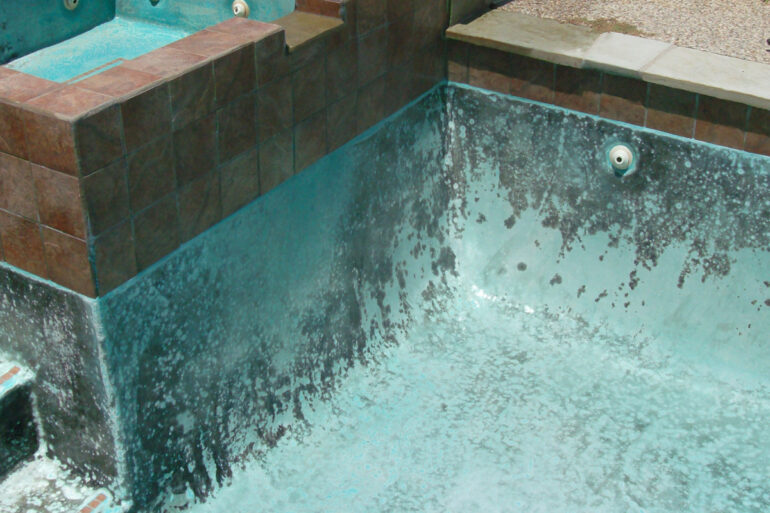Public Pitch
How to navigate the commercial pool bidding process

Commercial and residential pools have multiple, clear differences. Among those differences is the bidding process, which on the commercial side involves several noteworthy factors.

Rick Woemmel, president of Bi-State Pool & Spa in O’Fallon, Missouri, bids his projects by estimating time they’ll be there and putting that into software, which takes into consideration overhead, profit, inflation and other important metrics.
Wording of the contract is also important, Woemmel adds. Establishing clear expectations, timeframes of service and billing parameters are a must. Situations that would require an inspector, additional billing or free-of-charge services should be outlined.
“With commercial pools, there are often health departments and a different set of codes involved,” Woemmel says, which may also require up to daily maintenance. “Stating what will be performed in a contract [in consideration of these regulations] and sticking with that schedule prevents misunderstandings, overlaps and underlaps in service.”
Jesse Derr, president of Accurate Pool and Landscape, LLC in Collinsville, Illinois, says that when bidding services for a commercial pool, the most important thing is following all local, state and city codes and guidelines. “It would be a shame to do an extensive rehab or install just to have to redo it and lose money on the corrections,” he says.
In keeping up with guidelines, Derr says Accurate Pool and Landscape also does an inspection before bidding and installing to make sure previous companies that had serviced or repaired components of the pool and filtration systems have also followed local and government agencies’ mandates.
Joshua McCarthy, president of McPools, Inc., in Bradenton, Florida, takes a similar approach in scouting the pools for trends in previous maintenance. “[A pool service company must] review the equipment room, make notes and ask questions why certain things haven’t been repaired,” McCarthy says. “We always review the chemical log, as that will often tell a story and create sales opportunities.”
It’s more about managing expectations and people than the actual pool. Most commercial pools are managed by employees, property managers or board members…They are looking at the pool as a task, while homeowners view the pool as part of their home. Joshua McCarthy, president, McPools, Inc.
Woemmel says commercial pools have to run 24 hours a day and meet regulations on how many times a day the pool water is filtered or sanitized.
Derr, McCarthy and Woemmel all say there is a major difference between bidding on commercial pools versus residential: Commercial pools have multiple parties involved in pool care decisions, versus a lone homeowner for residential.
McCarthy says if pool service companies don’t have a strategy, they may end up with a dozen “customers” for one account. “It’s more about managing expectations and people than the actual pool,” he says. “Most commercial pools are managed by employees, property managers or board members. Their motivation is often different than a homeowner’s. They are looking at the pool as a task, while homeowners view the pool as part of their home.”
Whether it is dealing with HOAs, apartment complexes, municipalities or hotels, Derr says with commercial pools, there is almost always a chain of command.
“We typically meet with [the pool’s] CPO, maintenance person or grounds keeper to discuss the repairs needed,” Derr says. “Once we’ve gathered necessary information for the job, we put an estimate together. From there, it goes to the general manager or person in charge of the property, then it’s sent to their corporate office for approval. Once we get a signed estimate, their materials are ordered if not on hand, and their job is scheduled.”
Understanding who makes final decisions is another key, per McCarthy. “With most hotels, you will interact with the engineer/maintenance manager or general manager,” he says. “[With HOAs] you need to establish a chain of command and stick to it. You will likely have a property manager and a board president to work with.”
When bidding on continual service of a commercial pool, McCarthy says McPools, Inc., typically offers between 12 and 30 visits per month per pool, with 25% surcharges for weekends. If there are issues caused by swimmers, McCarthy charges for an additional visit. “If the issue was caused by an error or a miscalculation, we complete that visit at no charge,” he adds.
Payments should also be considered. “Oftentimes, payments may be slower when working on commercial pools; unlike a residential customer, they can’t just go get their checkbook,” Woemmel says. Accounting for these slower payments is one of the most important things to keep in mind when bidding on commercial projects, Derr says. “I’ve learned to ask when we will get paid,” he says. “A lot of commercial properties pay in 30-, 60- or 90-day [intervals], and sometimes on a multiple thousand dollar job, it is important to charge a little more or make sure you’re getting a down payment to cover your job expenses.”
Considerations when bidding on commercial pool service
- Insurance requirements and cost
- Local ordinances and health regulations
- Size of the pool and weekly chemical requirements
- Number of service days per week required by the health department
- Travel time, especially for off-route, lastminute fixes due to health code violations
- Typical bather load and how that will affect pool chemistry
Find federal, state and county pool service codes at: nspf.org/content/state-county-and-country-codes






